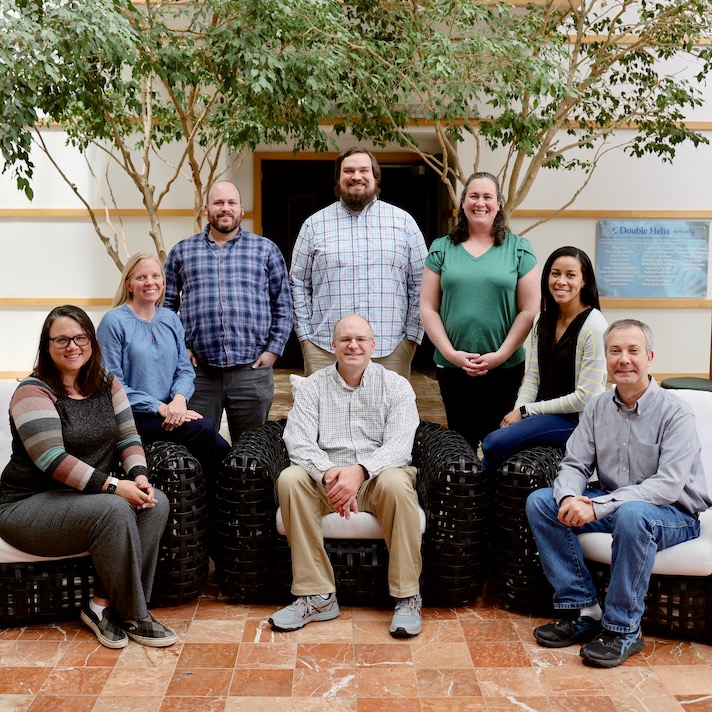Huntsville, Ala. – The HudsonAlpha Institute for Biotechnology, in collaboration with the University of Washington, has received a three-year, $1.9 million grant from the National Institutes of Health (NIH) to develop new computational approaches for identifying genomic variants’ influence on disease susceptibility.
HudsonAlpha faculty investigator Greg Cooper, PhD, and Jay Shendure, MD, PhD, from the University of Washington developed the Combined Annotation Dependent Depletion (CADD) tool, which identifies the individual genetic variants that are likely to contribute to disease. This project will continue to build on the CADD methodology and explore new applications in other genetic studies.
As we enter an era of personalized medicine, a deep understanding of human genomes will be increasingly important to public health,” said Cooper. “However, our limited understanding of the functional consequences of most genetic variants represents a major obstacle. This proposal seeks to dramatically improve our ability to identify and interpret ‘non-coding’ variants that causally contribute to human disease.”
Shendure said sequencing was the first major genomics challenge; the new hurdle is genomic variation.
“Studies have been successful up to a point, but are currently stuck. We know what parts of the genome likely matter, but can’t pinpoint the exact variants and genes,” said Shendure. “Tools such as those developed by our project and the FunVar initiative more generally will help to ‘unstick’ these efforts.”
The collaborative research project will provide needed methods and resources to address the challenges associated with individual whole genome sequencing in both research and patient care.
This research is supported by NIH grant 1RO1CA197139.
About HudsonAlpha: HudsonAlpha Institute for Biotechnology is a genomic science and applications nonprofit organization. It is both a high-volume genomic data producer serving thousands of academic, clinical, and commercial clients’ needs. The Institute is a global scientific collaborator valued for its genomic data analysis and interpretation to solve some of the most pressing questions in cancer, undiagnosed childhood genetic disorders, neuropsychiatric disorders, immune-mediated disease, agriculture and public health. Its unique 152 acre campus melds the boundaries between nonprofit scientists, educators and entrepreneurs so that collaboration sparks innovation and growth. To learn more about HudsonAlpha, visit: http://hudsonalpha.org/
About NHGRI: is one of the 27 institutes and centers at the National Institutes of Health. The NHGRI Extramural Research Program supports grants for research and training and career development at sites nationwide. Additional information about NHGRI can be found atwww.genome.gov.
About National Institutes of Health (NIH): NIH, the nation’s medical research agency, includes 27 institutes and centers and is a component of the U.S. Department of Health and Human Services. NIH is the primary federal agency conducting and supporting basic, clinical, and translational medical research, and is investigating the causes, treatments, and cures for both common and rare diseases. For more information about NIH and its programs, visitwww.nih.gov.
HudsonAlpha Media Contact:
Margetta Thomas
Communications Specialist
(256) 327-0425
mthomas@hudsonalpha.org
NIH Media Contact:
Steven Benowitz
NHGRI Communications
(301) 402-0911
Steven.Benowitz@nih.gov


